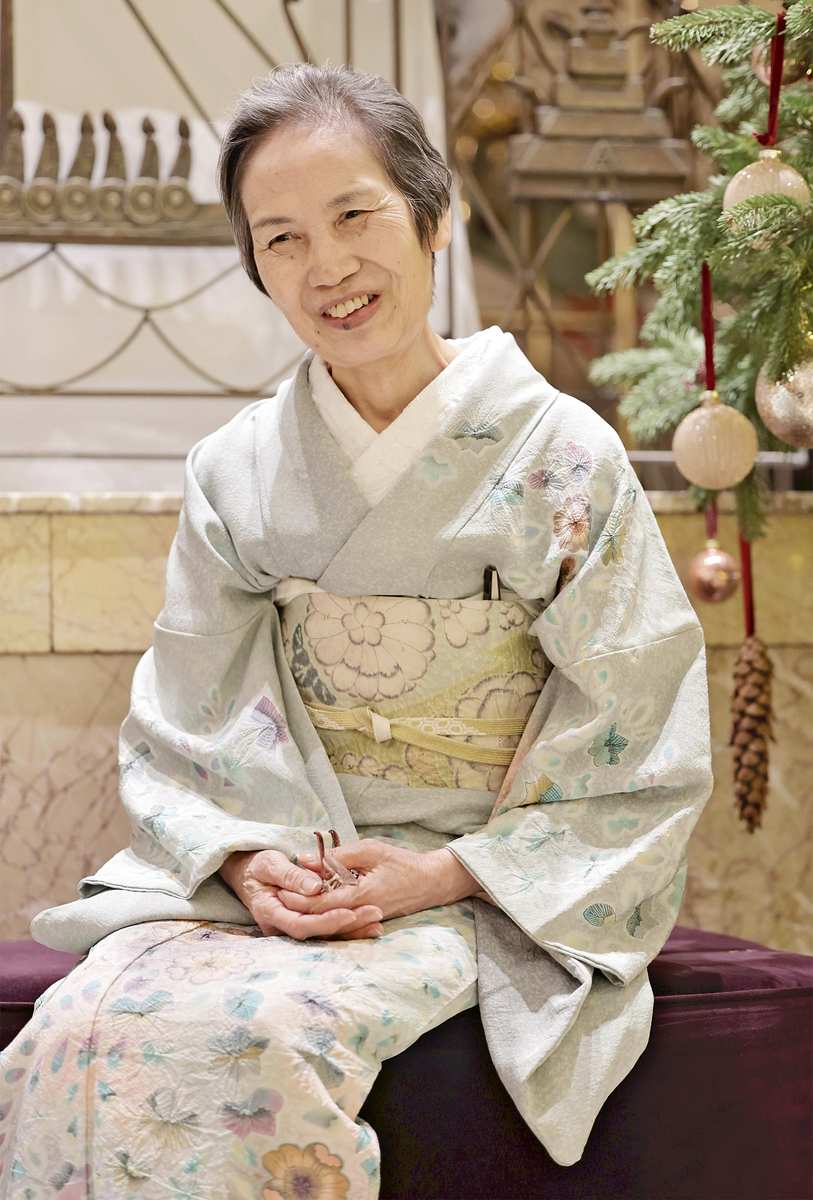Nihon Hidankyo Exec Says Receiving Nobel Peace Prize Not Goal; A-Bomb Survivor Determined to Continue Sharing Stories in English

Masako Wada, assistant secretary general of Nihon Hidankyo (Japan Confederation of A- and H-Bomb Sufferers Organizations), speaks following a banquet to celebrate the organization being awarded the Nobel Peace Prize in Oslo on Tuesday.
17:54 JST, December 11, 2024
OSLO — Masako Wada, assistant secretary general of Nihon Hidankyo (Japan Confederation of A- and H-Bomb Sufferers Organizations), is one of the few hibakusha atomic bomb survivors who can speak about the horrors of the atomic bombings in English.
The 81-year-old attended a banquet in Oslo following Nihon Hidankyo receiving the Nobel Peace Prize at the award ceremony on Tuesday. After speaking with many of the attendees in English, she renewed her determination to continue appealing for the abolition of nuclear weapons to the international community.
“Many attendees came over to me, saying how moved they were during the award ceremony,” said Wada, who wore a kimono to the banquet. “I felt that we received an enthusiastic response.”
Wada was a year old and at her home in Nagasaki when the United States dropped an atomic bomb on the city on Aug. 9, 1945. Bodies were burned from dawn until dusk in a vacant lot next to her house. Wada grew up hearing this story over and over from her mother.
Wada became an English teacher in Nagasaki, and after getting married, she moved to the United States for her husband’s job. Now living in Yokohama, she has been involved in the activities of an atomic bomb survivors’ organization in Tokyo over the past four decades since returning to Japan.
Wada once wrote what she remembered based on what her mother had told her for a collection of testimonies by hibakusha.
When she showed it to her mother, her mother only said, “This doesn’t say anything about what actually happened.”
Her mother said that every August, she would remember the smell of the atomic bomb victims’ bodies being burned. As Wada did not know such a smell, she wondered if it would be right for her to speak about the atomic bombing in Nagasaki.
However, meeting Setsuko Thurlow at an international conference in Geneva in 2016 was a turning point for her. Now living in Canada, Thurlow, 92, is a hibakusha who was in Hiroshima when the atomic bomb was dropped.
Thurlow encouraged Wada, saying: “You know better than anyone else what your mother told you. I hope younger people like you will share your own story.”
Since then, Wada has attended a number of international conferences to give testimonies in English.
Wada said that when she spoke about her experiences as a hibakusha in front of diplomats, it was the first time for many of them to hear such a testimony. he said that she has often had to face the reality that the experiences of hibakusha are not widely known.
However, she said that other times, she has received a standing ovation, making her feel the importance of speaking at international events.
Now that Nihon Hidankyo has received the Nobel Peace Prize, Wada believes even more strongly that the “testimonies of hibakusha have served as a deterrent against the use of nuclear weapons.”
“Receiving the Nobel Peace Prize isn’t the goal,” Wada said. “I’ll continue to pass on the hopes of hibakusha to the rest of the world and to people of all ages.”
Related Tags
Top Articles in Society
-

JAL, ANA Cancel Flights During 3-day Holiday Weekend due to Blizzard
-

Record-Breaking Snow Cripples Public Transport in Hokkaido; 7,000 People Stay Overnight at New Chitose Airport
-

Australian Woman Dies After Mishap on Ski Lift in Nagano Prefecture
-

Foreign Snowboarder in Serious Condition After Hanging in Midair from Chairlift in Nagano Prefecture
-

Train Services in Tokyo Resume Following Power Outage That Suspended Yamanote, Keihin-Tohoku Lines (Update 4)
JN ACCESS RANKING
-

Univ. in Japan, Tokyo-Based Startup to Develop Satellite for Disaster Prevention Measures, Bears
-

JAL, ANA Cancel Flights During 3-day Holiday Weekend due to Blizzard
-

China Confirmed to Be Operating Drilling Vessel Near Japan-China Median Line
-

China Eyes Rare Earth Foothold in Malaysia to Maintain Dominance, Counter Japan, U.S.
-

Japan Institute to Use Domestic Commercial Optical Lattice Clock to Set Japan Standard Time





















